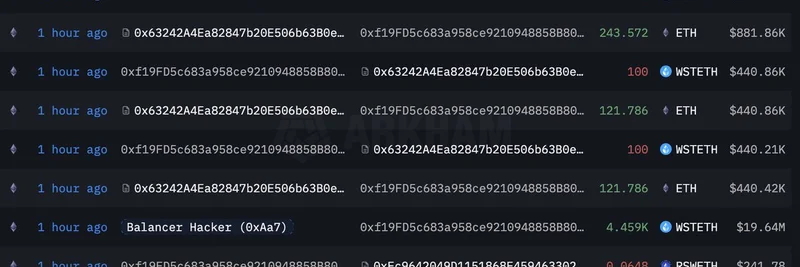In the ever-evolving world of cryptocurrency, a single tweet can ignite widespread discussion about the industry's core principles. Recently, prominent trader and founder of Breakout Prop, Mayne, shared a thought-provoking response to a post from U.S. Treasury Secretary Scott Bessent. Bessent celebrated Bitcoin's resilience on the 17th anniversary of its white paper, noting how the network "never shuts down" and taking a jab at Senate Democrats. But Mayne saw it differently, calling the current state of Bitcoin "quite sad."
Mayne's tweet highlights a growing concern among crypto purists: the original vision of Bitcoin as a decentralized, peer-to-peer electronic cash system—free from government oversight and institutional gatekeepers—seems to be slipping away. Instead, it's increasingly tied to regulated exchanges requiring Know Your Customer (KYC) processes, massive institutional investments, and even nods from high-level government officials. For those who remember Bitcoin's roots in the cypherpunk movement, this mainstream adoption feels like a double-edged sword.
The Shift from Rebellion to Regulation
Bitcoin was born out of the 2008 financial crisis, designed by Satoshi Nakamoto as an alternative to traditional banking systems plagued by centralization and trust issues. The white paper promised a world where individuals could transact without intermediaries. Fast-forward to today, and we've seen spot Bitcoin ETFs approved by the SEC, major banks like BlackRock diving in, and even treasury secretaries tweeting about its uptime.
While this has driven Bitcoin's price to new heights and brought in billions in capital, critics like Mayne argue it's come at a cost. KYC requirements on exchanges mean users must verify their identities, potentially exposing them to surveillance. Institutional ownership concentrates power in the hands of a few large players, echoing the very Wall Street dynamics Bitcoin aimed to disrupt. As one reply to Mayne's tweet put it, "They couldn't beat it so they joined it and ruined it."
This sentiment resonates in online discussions, with replies ranging from defenses of Bitcoin's "natural growth" to suggestions of privacy-focused alternatives like Zcash ($ZEC). Some users compared it to indie bands "selling out" after hitting the mainstream—growth is great, but does it dilute the essence?
Meme Tokens: Keeping the Crypto Spirit Alive?
At Meme Insider, we focus on the wild, community-driven side of crypto through meme tokens, which often embody the rebellious ethos that Bitcoin once championed. Unlike Bitcoin's institutional path, many meme coins thrive on decentralization, anonymity, and viral community engagement. Projects built on blockchains like Solana or Ethereum allow pseudonymous participation without mandatory KYC, fostering creativity and accessibility.
Think about it: meme tokens like Dogecoin started as jokes but evolved into symbols of grassroots adoption. They remind us of crypto's fun, anti-establishment roots. As Bitcoin becomes more "respectable," meme coins might be the torchbearers for Satoshi's vision—empowering individuals over institutions. Of course, this space isn't without risks, including volatility and scams, but it keeps the door open for true peer-to-peer innovation.
What Does the Future Hold?
Mayne's tweet serves as a reminder to reflect on where crypto is headed. Is mass adoption worth compromising on privacy and decentralization? Or can we find a balance that honors the original ideals while welcoming new users? As blockchain technology advances, watching how governments and institutions interact with it will be key.
For now, discussions like this keep the community vigilant. If you're diving into meme tokens as an alternative, check out our knowledge base for the latest on trending projects and tech updates. What's your take—has Bitcoin lost its way, or is this just evolution? Share in the comments below.

